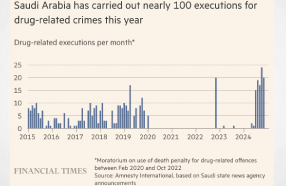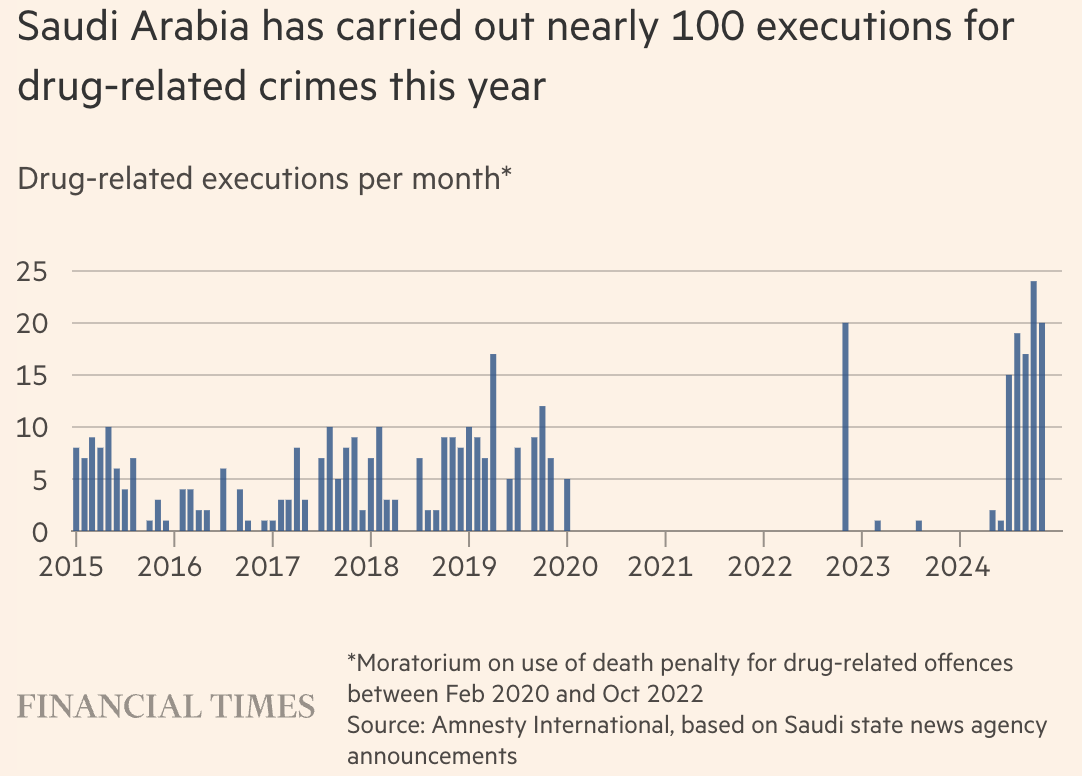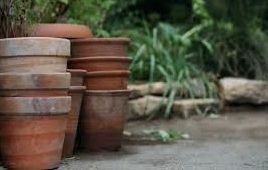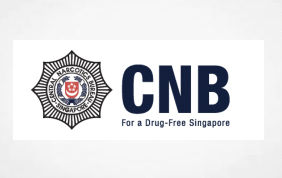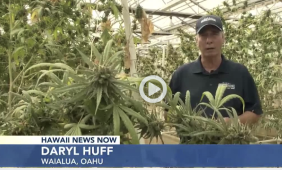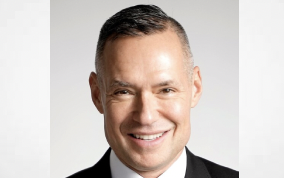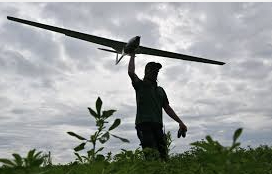Here’s part of the articl. It is worth reading the article in full at https://www.ft.com/content/7a061c56-dab9-4daa-883b-32e23c33d871
The kingdom has carried out nearly 100 executions for drug-related crimes so far this year, up from just two in 2023, according to Amnesty International.
Official data on drug use in Saudi Arabia is scarce, but the health ministry last year estimated that there were more than 200,000 people whom they considered compulsive drug users among the kingdom’s 32mn population.
Researchers say the rising issue may be one of the unintended consequences of Prince Mohammed’s Vision 2030 programme, launched in 2016 with a view to modernising the kingdom. Reforms have included removing restrictions on music concerts, leading to a rapid proliferation of entertainment options, and the rapid integration into public life of women who had previously been banned from driving and were often kept at home. Alcohol, however, remains strictly prohibited.
Alaa Nabil Mahsoon of King Abdulaziz University in Jeddah, who published a study last year into drug use in Saudi Arabia, said that while major social changes had exposed young people to newfound freedom, it had also caused a counter-reaction from families seeking to restrict them — increasing conflict within households and the allure of drugs.
Mahsoon said that the most “surprising” finding from her research was that women tended to use drugs for a longer period of time than men. “Women face significant societal pressures,” she said. “Progress has been made in expanding opportunities and freedoms for women, but challenges remain at the family level . . . Some families are slower to adapt to these changes, which can create tensions, especially for younger women.” She said some women “don’t feel a sense of safety or fulfilment, maybe in their own homes. So whenever they find drugs, they stick to them.” Johara, a 37-year-old female business consultant, thought of herself as a casual alcohol drinker and user of hashish, but realised she had a problem during the pandemic, when she caught herself using in between client calls. “That’s when I knew that there was a really big issue,” said Johara, who asked that her real name not be used. She joined a Narcotics Anonymous group and eventually got sober, describing her addiction as a “disease”.
A wide range of substances is available in the kingdom. The doctor in the Eastern Province, for example, said he has noticed more consumption of hashish and crystal meth “because they are easy to consume and easy to hide”.

